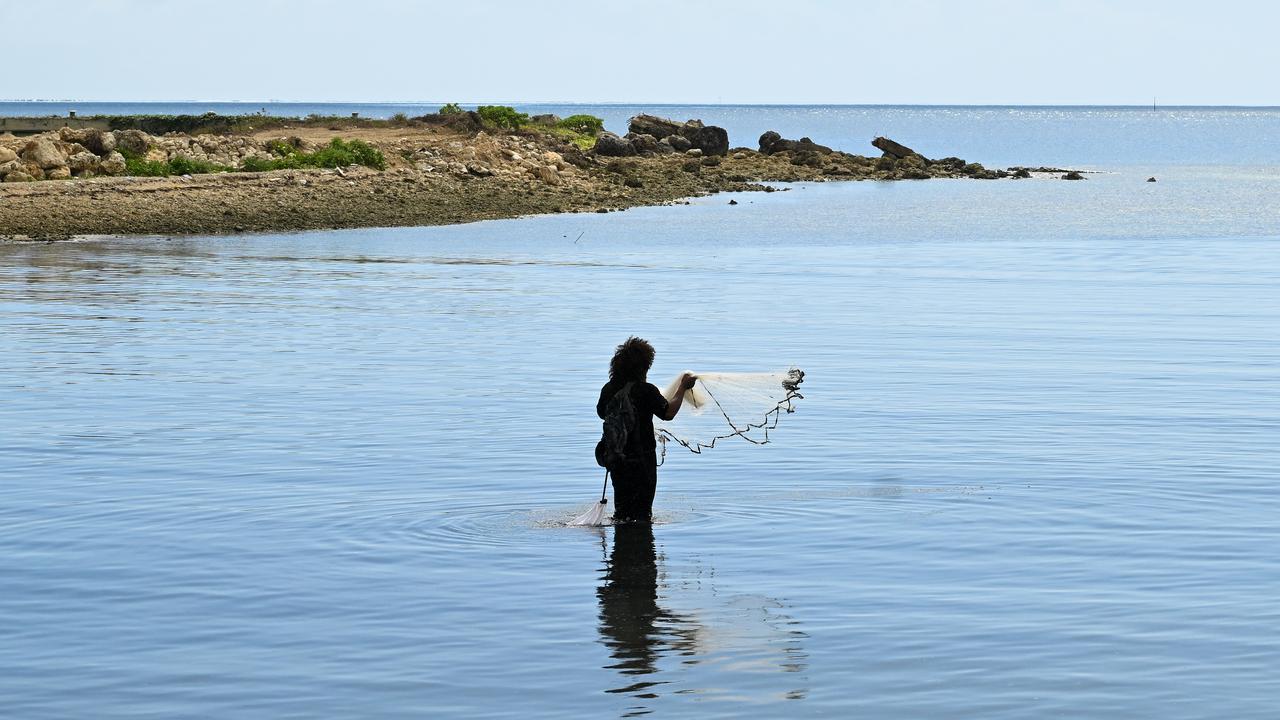
Australia is preparing to deliver its position on what obligations states have to address climate change and help Pacific island nations facing the existential threat.
The International Court of Justice is holding oral hearings between December 2-13 to inform advice on what obligations nations have to address climate change and what the legal consequences of failing to do so are.
It will examine what obligations larger states have toward small countries, predominantly Pacific island nations, that are the most vulnerable to climate change.
Vanuatu is spearheading the charge for international accountability.
Australia will present its oral argument at The Hague on Monday local time (Tuesday AEDT).
Some 100 states and a dozen international organisations flagged an intention to participate in oral proceedings.
Vanuatu’s special envoy on climate change Ralph Regenvanu said the voices of smaller states and vulnerable nations “are being overshadowed in climate negotiations”.
“The results we need to survive are not being achieved,” he told ABC TV on Sunday.
Going to the international court to advocate for climate action meant all parties were equal, Mr Regenvanu said.
“Many states right now … are in breach of their responsibilities and obligations as good international citizens and that is something we want the ICJ to rule on.”
Greens senator Steph Hodgins-May was a former environmental lawyer who worked on the early stages of the advisory opinion push with Pacific leaders.
It was hard to fathom at that time there would be major international support for an advisory opinion on climate justice and getting to the point of oral submissions was extraordinary, she said.
“It’s a landmark moment,” the senator told AAP.
Engagement with the proceedings was “a reflection of Australia’s backing-in of Pacific leadership and commitment to strengthen global climate action”, a foreign affairs department spokesperson told AAP.
But the department wouldn’t comment on what the submission would contain.

Australia filed its first written submission in March 2024 and provided a second comment in August.
Anything less than a pledge to stop approving new coal and gas projects and a commitment to end subsidies for fossil fuels “will be considered a failure by those leading the case”, Senator Hodgins-May said.
“We can’t refer to the Pacific islands as Pacific family while continuing to wave through new coal and gas,” she said.
There was an “unconscionable gap” between what scientists say needs to be done to protect against a climate catastrophe and what the international community was doing, Pacific Islands Students Fighting Climate Change said.
The ICJ proceedings were important as they would influence national and international courts’ interpretation of climate action duties and “help cut through the political inertia that had plagued climate negotiations”, the students said.
“For far too long, the states most responsible for the climate crisis have failed to lead in addressing it and paying up for the harm they have caused,” they said in a statement.

Senator Hodgins-May agreed a positive advisory opinion from the world’s top court would create a strong legal precedent for Australian and international courts and “catalyse serious climate action”.
“It will provide clarity to courts hearing issues on climate impacts every single day, including here in Australia,” she said.
Australia contributed $50 million towards a climate change loss and damage fund in November while the world’s largest powers and economies agreed on a climate finance target of at least $460 billion.
The federal government expects to put $3 billion towards climate finance between 2020 and 2025, largely focused towards the Pacific and Southeast Asia.
This post was originally published on Michael West.